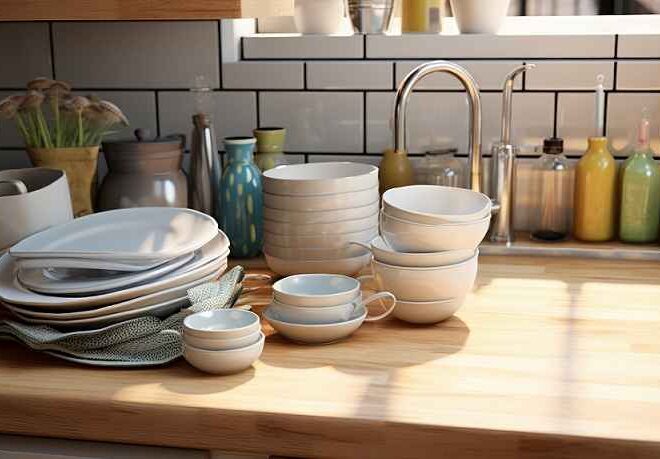
Can You DIY a Kitchen Renovation?
A DIY kitchen renovation can be an appealing and rewarding project for many homeowners. The prospect of transforming your outdated or dysfunctional kitchen into a beautiful, functional space is exciting. Beyond just the aesthetic improvements, upgrading your kitchen also improves usability and can add real value to your home.
The growing popularity of DIY home renovations is driven by both the potential cost savings and the sense of personal accomplishment. Homeowners who successfully tackle DIY projects gain new skills and take pride in the work they accomplish themselves. With careful planning and commitment, a DIY kitchen renovation is feasible for many.
However, kitchen remodels require a broad range of skills. It’s important to thoroughly assess your experience and abilities before embarking on an intensive DIY project. With realistic planning and preparations, you can minimize risks and set yourself up for a smooth and successful DIY kitchen renovation.
Table of Contents
ToggleAssessing Your DIY Capabilities
Evaluate Your Skills and Experience
A kitchen renovation typically involves:
- Demolition – Removing old cabinets, countertops, flooring, appliances, etc.
- Plumbing – Installing, repairing or replacing sinks, faucets, garbage disposals, water lines, etc.
- Electrical – Upgrading wiring, installing new lighting fixtures, electrical outlets, switches, etc.
- Cabinetry – Building, installing and finishing new cabinets.
- Countertops – Fabricating and installing new countertop surfaces.
- Flooring – Laying new tile, wood, vinyl or other flooring types.
- Painting & Finishing – Prepping surfaces and painting walls, trim, and ceilings.
Honestly assess your existing DIY skills and knowledge for each of these areas. If you have limited experience with certain tasks, be realistic about your ability to learn as you go. Complex renovations may require hiring professional contractors to handle specialized work.
Consider the Scope of Your Project
The size and intricacy of your kitchen renovation will impact the feasibility as a DIY project. Small-scale cosmetic updates like:
- Painting cabinets
- Installing new cabinet hardware
- Replacing countertops
- Updating light fixtures
- Adding a backsplash
Are well-suited for DIYers. Major structural renovation involving:
- Knocking down walls
- Moving plumbing or gas lines
- Changing the floorplan layout
- Adding significant square footage
Generally require professional expertise. Evaluate your project scope and identify which parts you can handle yourself vs. what requires hiring contractors.
Evaluate Your Time and Budget
DIY projects inherently require a substantial time investment. Be realistic about how much time you can dedicate, especially if you plan to maintain a job or other responsibilities during the renovation. Rushing through a DIY kitchen remodel will sabotage the quality.
Also evaluate whether you can comfortably afford the expenses of a DIY renovation, including:
- Materials and supplies
- Equipment rentals
- Permit fees
- Potential mistakes that require re-purchasing items
Compare expected DIY costs to estimates from professional remodelers to determine the best option for your budget.
Developing a Plan
Create a Design and Layout
The planning stage is crucial for a smooth DIY renovation. Start by defining your ideal design aesthetic and layout for the new kitchen. Consider factors like:
- Traffic flow
- Cabinetry design and placement
- Appliance locations
- Countertop space
- Lighting plan
Use online kitchen planning tools or work with a designer to create a detailed layout you can execute.
Make a Detailed Budget
With your layout defined, make an itemized budget for all materials, appliances, fixtures, equipment rentals, and contractor fees (if applicable). Include a 10-20% buffer for incidental expenses that often come up in renovations. Confirm you have the necessary funds before moving forward.
Establish a Timeline
Break down the full renovation into individual steps with realistic time estimates, such as:
- Demolition (5-7 days)
- Cabinet Installation (3-5 days)
- Countertop Fabrication and Install (2-3 days)
- Flooring Installation (2-3 days)
- Painting & Finishing Touches (4-5 days)
Factor in shipping times for any materials you must order. Make sure your timeline is feasible given your schedule restraints.
Obtain Necessary Permits
Check with your local building department to determine which permits are required, such as plumbing, electrical, demolition. Apply for these well in advance and ensure inspections are scheduled at the appropriate phases.
Executing the DIY Renovation
Prepare the Space
Clear out any furniture or appliances and prep the kitchen for demolition. Use plastic sheeting to seal off doorways and protect the rest of the home from debris and dust. Turn off water supply lines and the electrical circuit for the kitchen.
Tackle the Major Tasks
With proper permits, you can begin the intensive work of removing old cabinets, flooring, and appliances. Safely turn off gas lines and cap plumbing during this phase if needed. Install rough electrical and plumbing for new layout. Construct or install cabinetry, then complete countertops, sink/faucet installation, flooring, painting.
Focus on the Finishing Touches
The details make the new kitchen! Add final touches like:
- Decorative backsplash
- Under cabinet lighting
- Hardware and fixtures
- Organizational inserts and dividers
Verify all appliances, plumbing, gas, and electrical are properly connected and functioning before final inspection.
Managing Challenges and Setbacks
Anticipate and Troubleshoot Issues
No renovation goes 100% smoothly. Have contingency plans to address problems like:
- Delays waiting for material/appliance deliveries
- discovering rot, mould or termite damage under the existing kitchen
- mistakes in cabinetry sizes or layout
- appliance delivery issues
Maintain Patience and Flexibility
Allow extra time in your timeline, and be prepared to make adjustments when needed. Stay focused on the end goal.
Seek Professional Assistance When Necessary
Know when to call in a professional, like for complex wiring, gas line installation, or structural issues beyond your skill level. Paying for expert help can save money and stress in the long run.
Enjoying the Finished Product
Celebrate Your Accomplishment
When your renovation is complete, celebrate this major accomplishment! Enjoy showing off your beautiful new kitchen.
Maintain and Improve Your Kitchen
Keep up with cleaning and maintenance. Consider small upgrades over time like adding new hardware, lighting, and accessories.
Conclusion
With careful planning, patience and commitment, a DIY kitchen renovation can be an achievable and rewarding undertaking. Evaluate your skills, budget and preparation realistically. Seek help from professionals when warranted. If done right, your transformed kitchen will provide a source of accomplishment and enhance your home for years to come.


